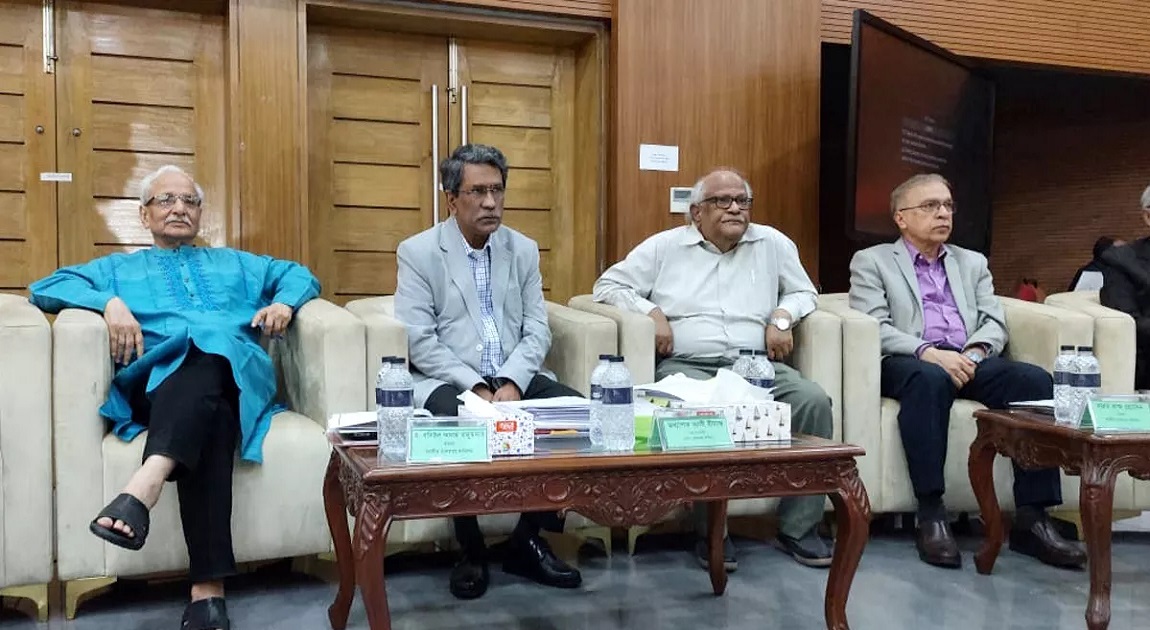The second phase of discussions with the National Consensus Commission has resumed today, Sunday, following a two-day break.
The talks are taking place at the Foreign Service Academy in Dhaka, with representatives from various political parties, including the BNP and Bangladesh Jamaat-e-Islami, in attendance.
The meeting is being chaired by Professor Dr. Ali Riaz, Vice President of the National Consensus Commission.
Today`s session has been organized to conclude discussions left unfinished during the previous rounds.
Present at the meeting are key commission members, including Abdul Muid Chowdhury, head of the Public Administration Reform Commission; Safar Raj Hossain, head of the Police Reform Commission; Badiul Alam Majumdar, head of the Election Reform Commission; Justice Emdadul Haque, head of the Judicial Reform Commission; and Iftekharuzzaman, head of the Anti-Corruption Commission Reform Committee.
Previously, on June 17, Bangladesh Jamaat-e-Islami did not participate in the unfinished second-phase discussions but later joined following communication from the interim government.
Despite ongoing dialogues, the political parties have yet to reach an agreement on several key issues, including the distribution of seats in the proposed upper house of parliament and the formation of a National Constitutional Council (NCC) intended to balance the Prime Minister’s executive powers.
Disagreements also persist regarding the method for electing the President and the process for selecting candidates for the reserved women’s seats.
Furthermore, political parties have yet to agree on a common definition of "national consensus," prompting the commission to consider providing clarification on the matter.
A review of last week’s four-day talks reveals a clear division among the parties. The BNP and five like-minded parties, with support from left-wing groups such as the Communist Party of Bangladesh (CPB) and the Socialist Party (BASAD), are advocating for reforms that include proportional seat distribution in the upper house and the establishment of the NCC.
In contrast, Jamaat-e-Islami, the Nationalist Citizen Party (NCP), Islami Andolon, the AB Party, and several other parties remain firmly opposed.
Notably, other allies of the BNP’s simultaneous movement—such as Gono Odhikar Parishad, Nagorik Oikya, Gono Songhoti Andolon, and Jatiya Samajtantrik Dal (JSD)—also hold positions contrary to the BNP’s on these specific proposals.
The BNP, along with the LDP, NDM, Labour Party, the 12-party alliance, and the 11-party alliance, continues to firmly oppose the proposal for seat distribution in the upper house based on the proportion of votes received in the general election and the formation of the NCC to reduce the Prime Minister`s powers.
Among the 30 participating political parties and alliances, consensus has only been achieved on one point: conditional relaxation of Article 70 of the Constitution.
However, even on this issue, Jamaat-e-Islami maintains that MPs should not be allowed to vote against their party on constitutional amendments, in addition to money bills and confidence motions.
The BNP argues that party members should not vote against their party’s stance even during wartime.
The political dialogue continues, with key issues still unresolved as the commission pushes for broader national consensus.














-20260226080139.webp)





-20260225072312.webp)








-20260219054530.webp)
-20260224075258.webp)





-20260221022827.webp)